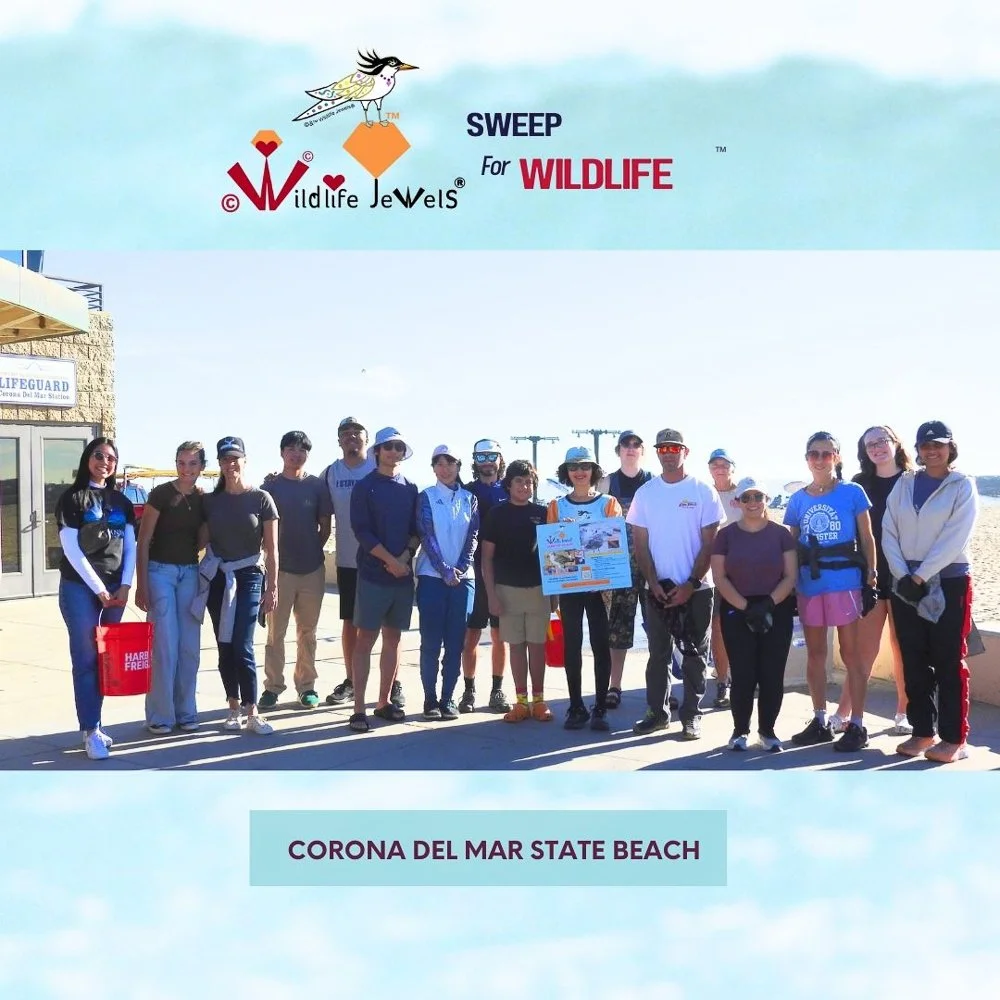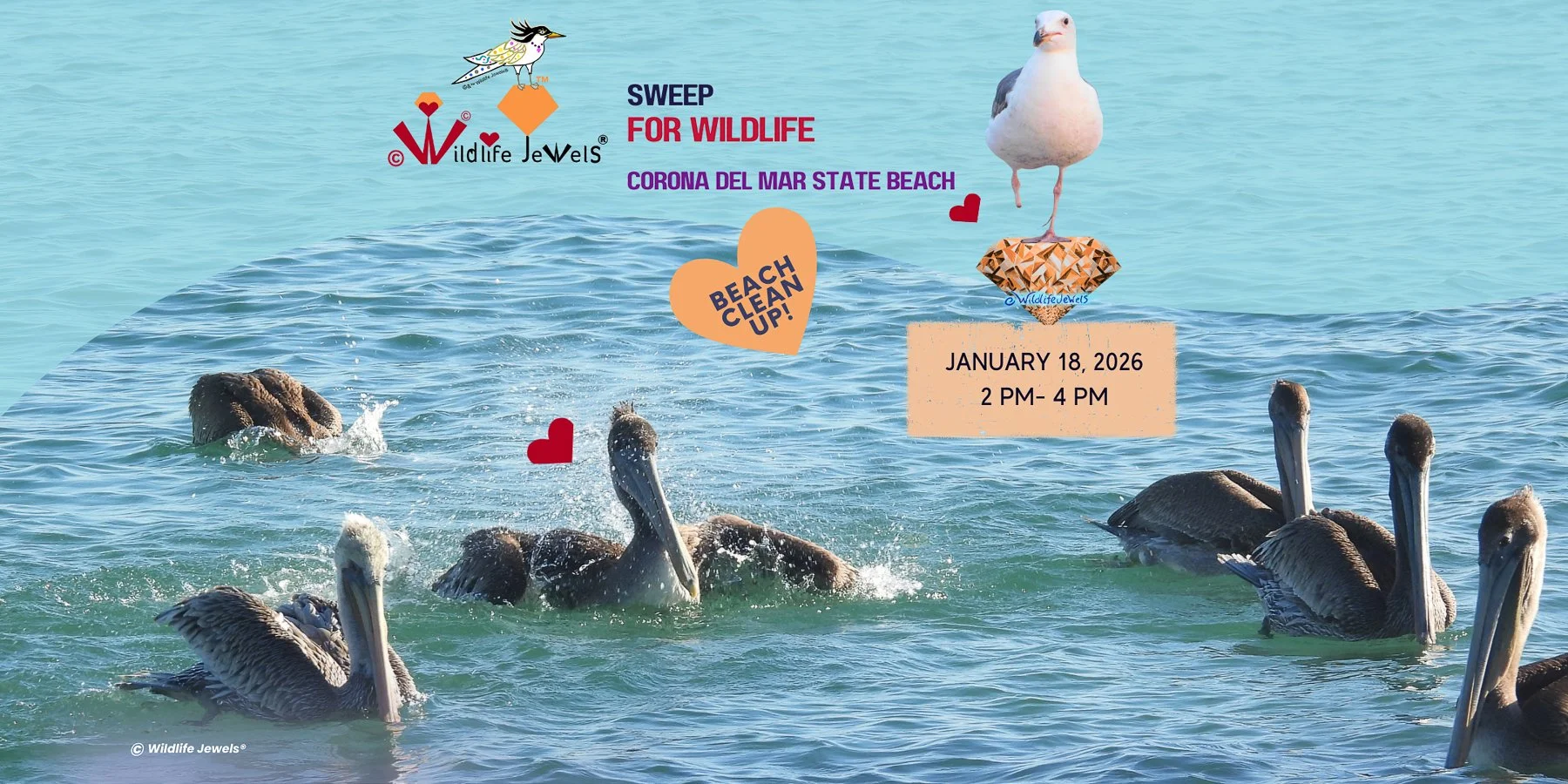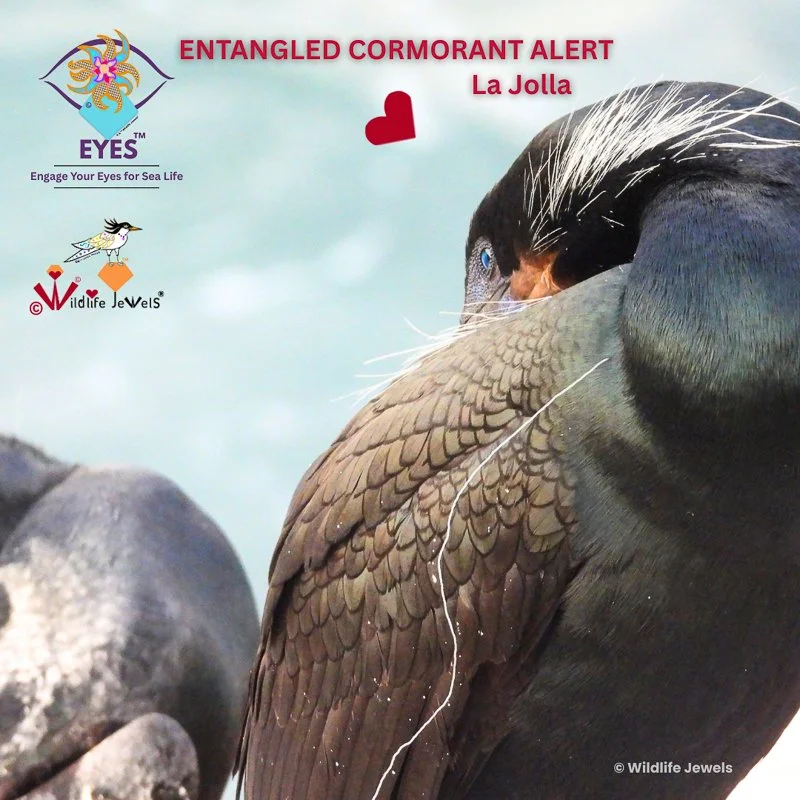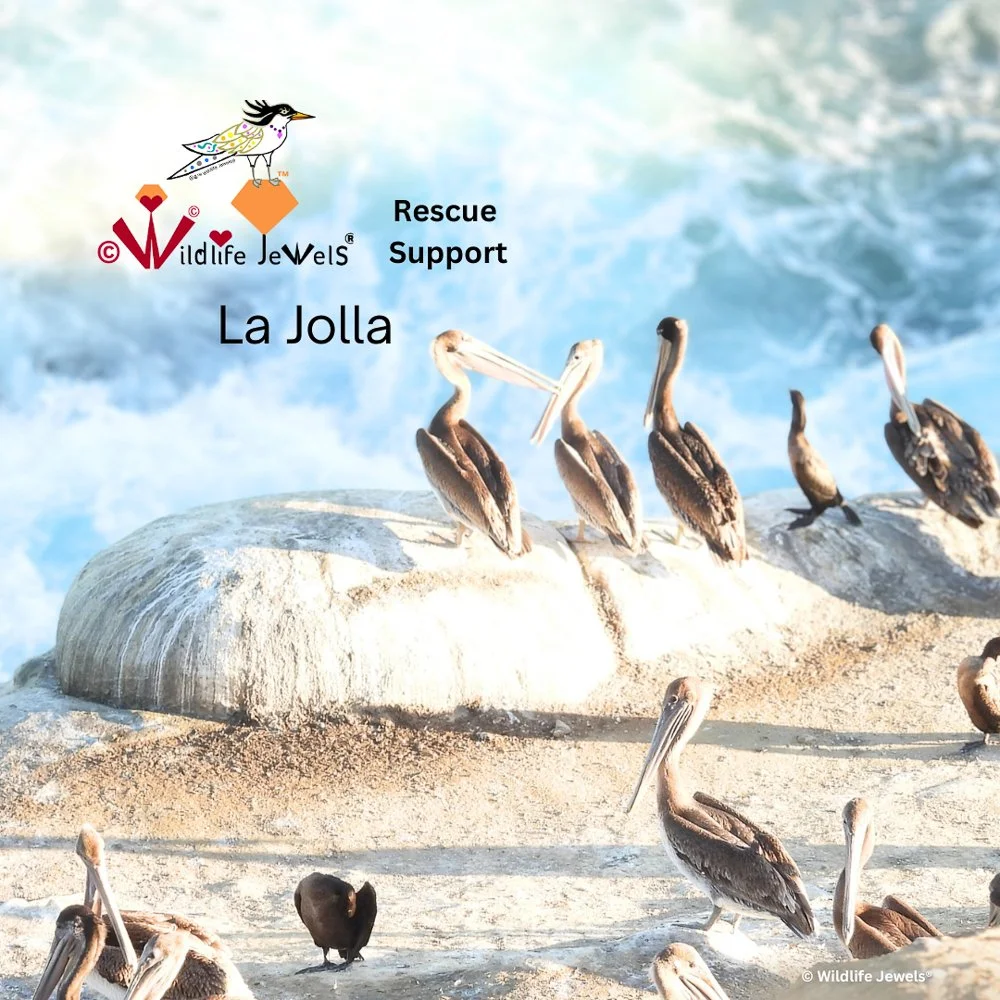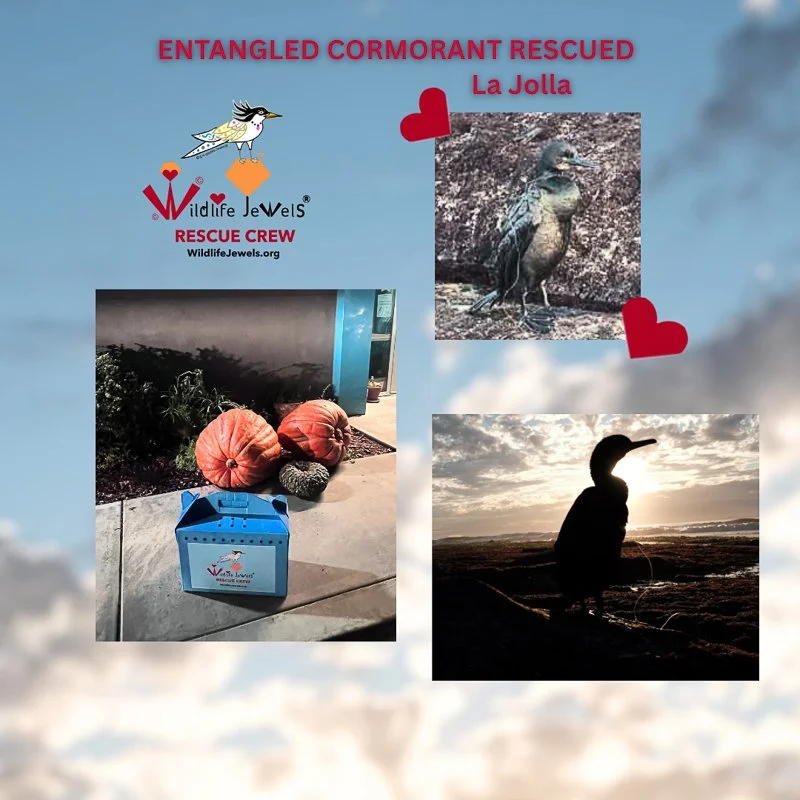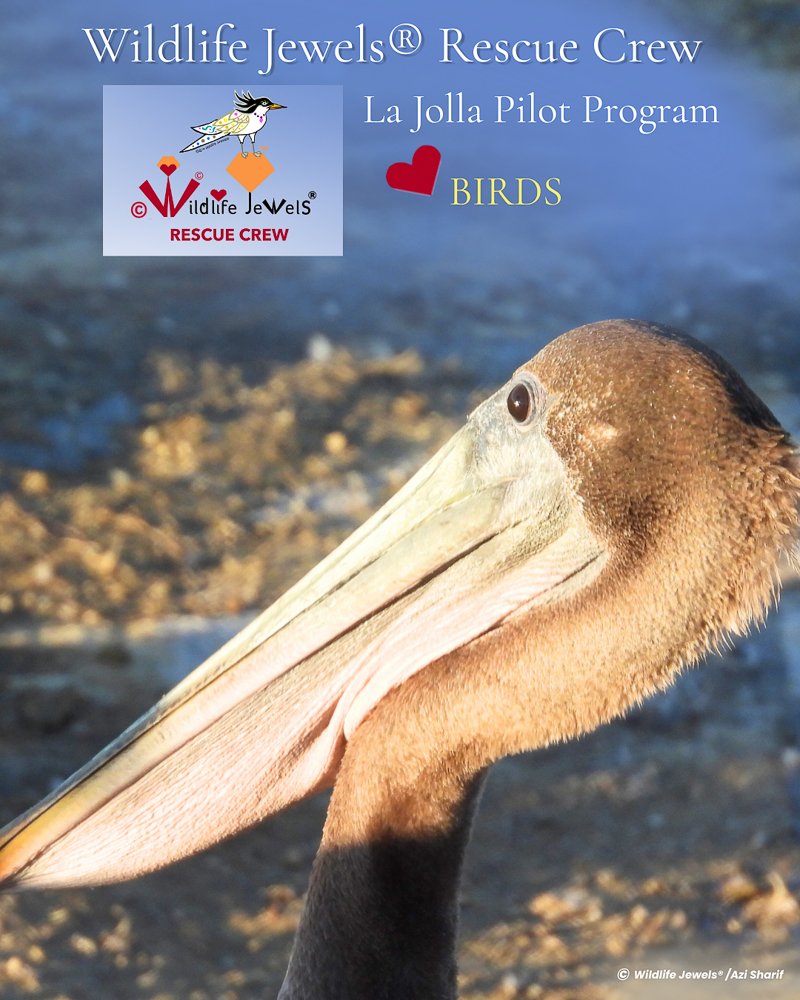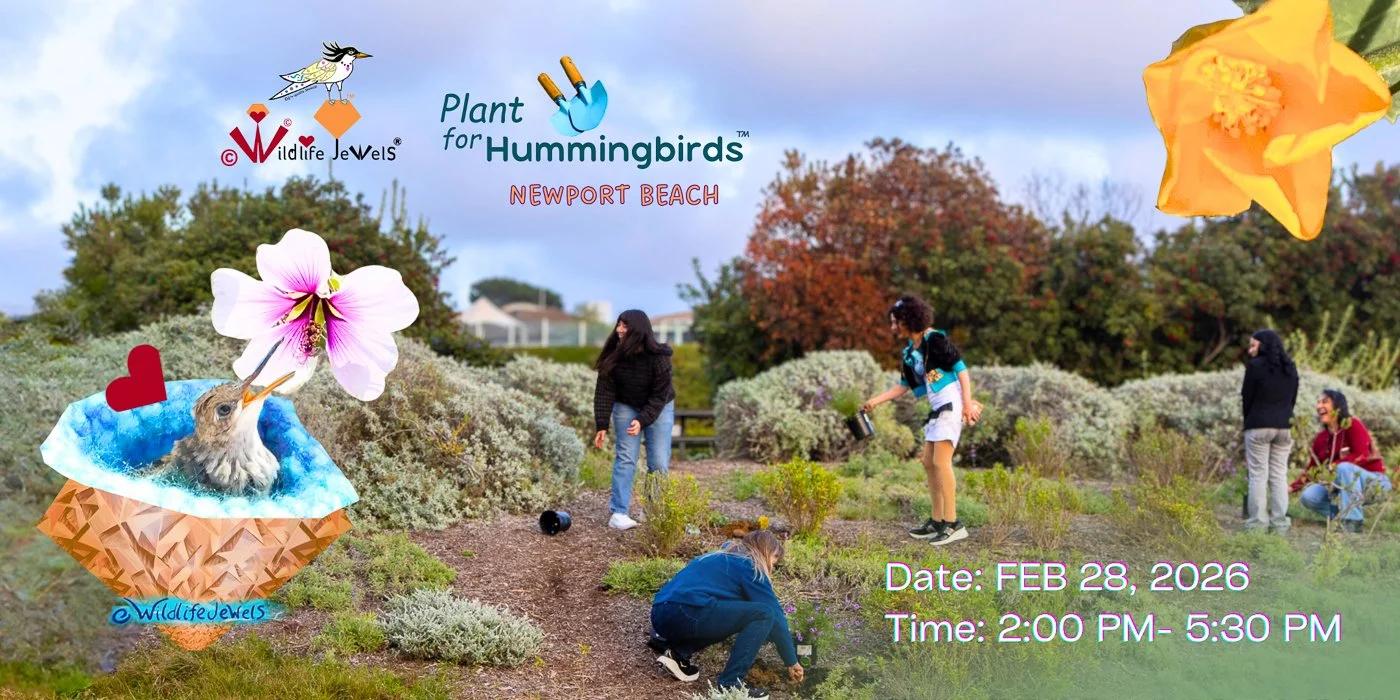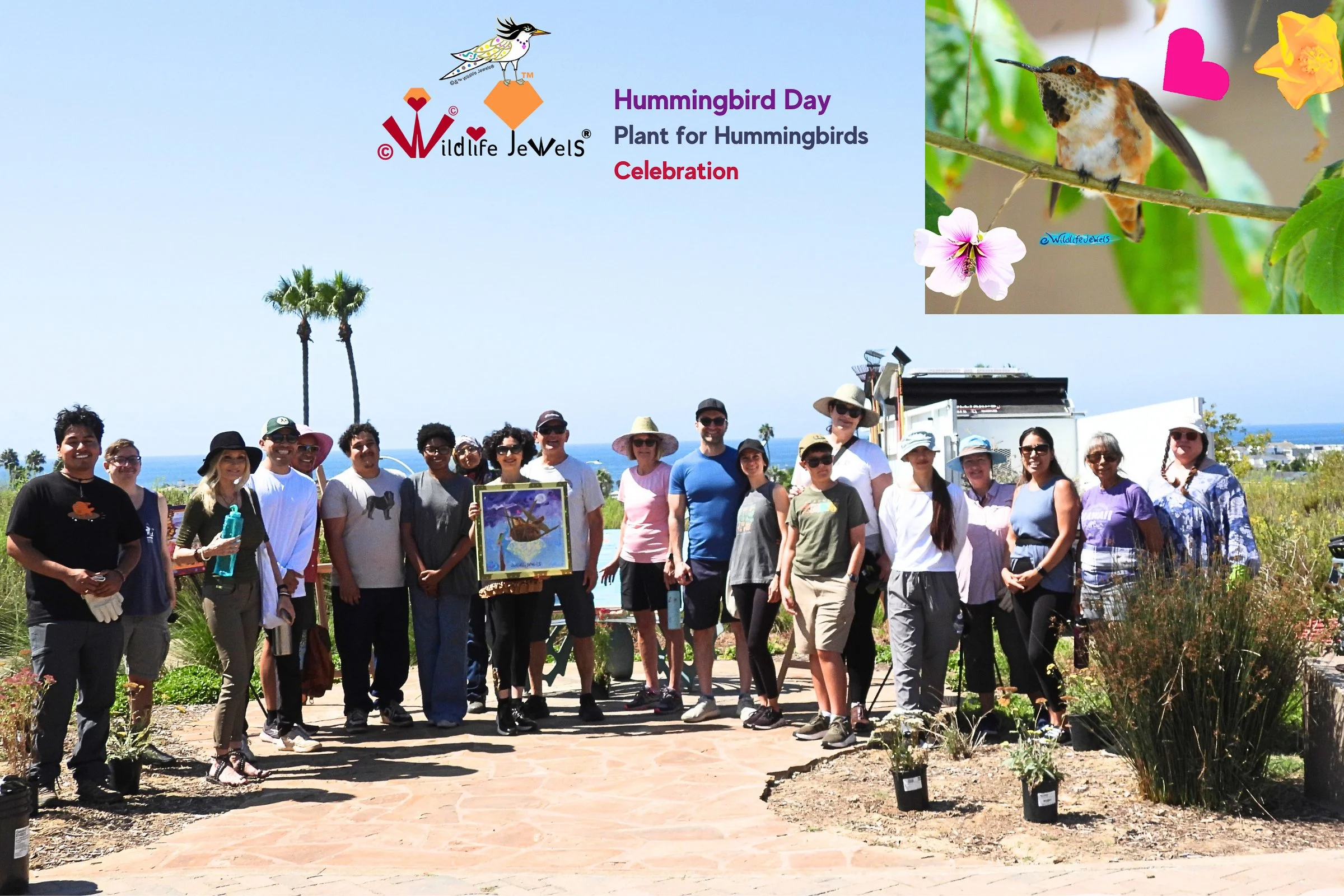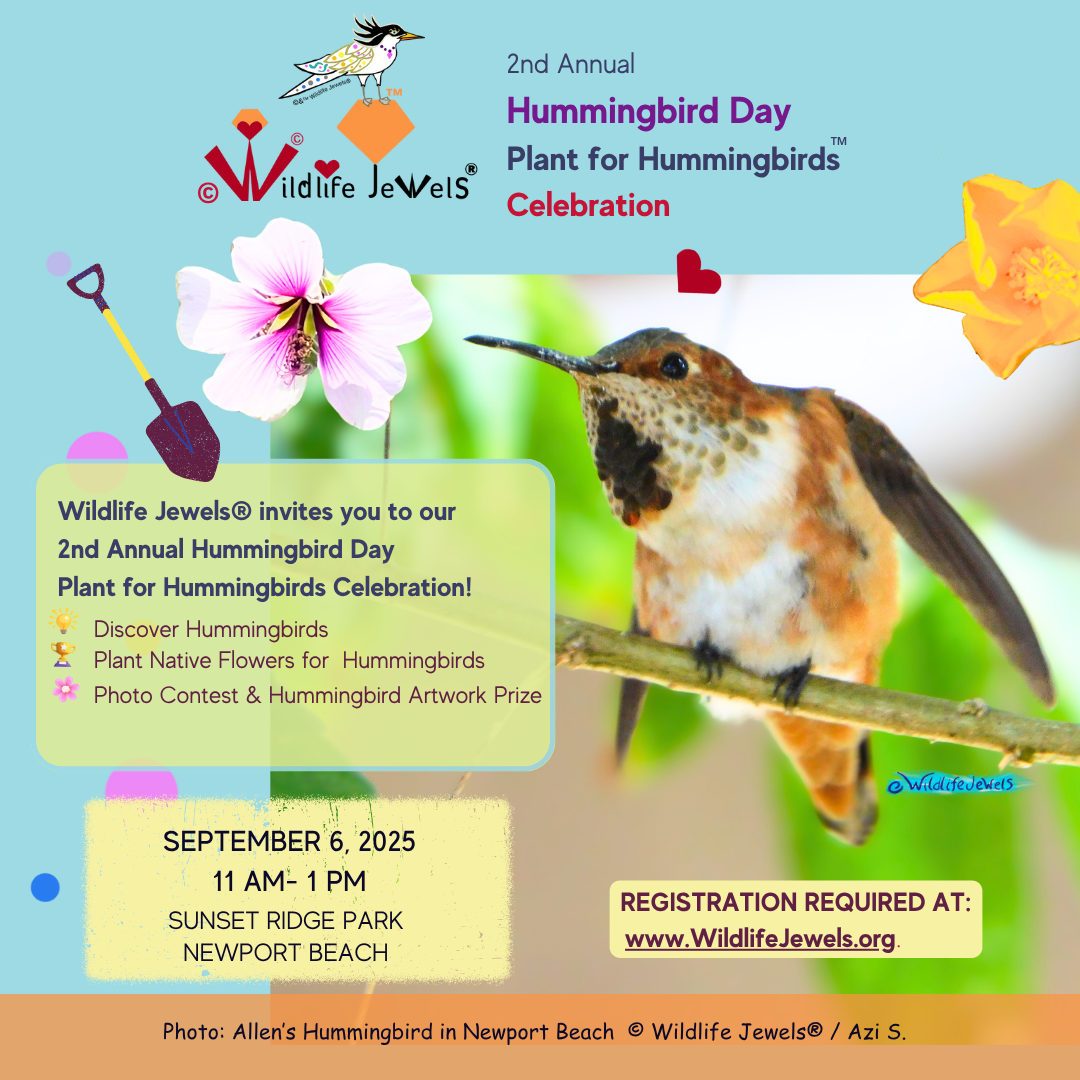Wildlife Jewels Sweep for Wildlife: Corona del Mar State Beach— Event Recap
Wildlife Jewels Sweep for Wildlife at Corona del Mar State Beach, September 21, 2025
What a fabulous day! Thank you to everyone who joined Wildlife Jewels for our Sweep for Wildlife cleanup at Corona del Mar State Beach.
Together we made the shoreline safer for people and wildlife—while learning about our local seabirds and marine life, the threats they face, and simple actions we can all take to protect them.
Our Focus for the Day
Protecting Coastal Wildlife: Removing debris that can injure, entangle, or poison birds and marine animals.
Community Education: Sharing quick, engaging facts about the seabirds and marine life we observed—and how to detect and report injured coastal wildlife.
Threat Awareness: Highlighting common hazards on our beaches (food waste, plastics, fishing gear, and hot coals) and how to prevent them.
What We Removed Together
Food & drink waste: soda/beer cans, bottle caps, plastic forks/knives, glass bottles, candy & chocolate wrappers, napkins, straws/stirrers
Beach fire debris: burnt wood, charcoal, and coal fragments—on the surface, buried beneath the sand, and scattered around the fire pits
Plastics: fragments, utensils, packaging, balloon pieces & ribbon/wraps, toys
Miscellaneous: rope bits, foam pieces, and other litter
Close Call: Chocolate Save — Seconds Matter
Our founder spotted a gull gripping a ~3″ × 3″ slab of chocolate—large enough to block the throat in a single gulp. She waited at a safe distance and, the moment the gull dropped it and moved off, safely retrieved and disposed of the chocolate and any litter.
Why we intervened: Chocolate is toxic to birds due to theobromine and caffeine; even small amounts can cause serious neurologic and cardiac problems. We removed the chocolate to prevent poisoning or ingestion.
Practical tip: Please pack out all food and wrappers, and never feed wildlife.
Wildlife We Observed
It’s always inspiring to learn from our local wildlife while we clean. Sightings included:
Heermann’s Gull, Western Gull, California Gull, Elegant Tern, Brown Pelican, Snowy Egret, Great Blue Heron, and Cormorants. Each sighting is a reminder of who we’re protecting with every piece of trash removed.
Learn & Help: Fast Tips
Spot & report distress: If you see an entangled or injured bird or marine mammal, keep a safe distance, see our Wildlife Rescue resources.
Pack it out: Take all food, wrappers, balloons, plastics, and gear with you.
Respect wildlife: Enjoy from a distance; never feed wildlife.
Fire-pit safety: Use only designated pits; cool and properly dispose of coals.
Get Involved
Join our Sweep for Wildlife Group
Join our EYES (Engage Your Eyes for Sea Life) Collective Group— Help us spot, document, and report distressed wildlife and threats to wildlife as volunteer or as a community reporter on your regular beach walks.
Learn how to join the Wildlife Jewels Rescue Crew— Help us rescue distressed coastal wildlife.
Volunteer with Wildlife Jewels — Outreach, Education & Arts Committees. Help with events, school programs, and creative projects that inspire our community to protect wildlife.
Presented by Wildlife Jewels®: Learn from Wildlife® • Sweep for Wildlife™ • EYES (Engage Your Eyes for Sea Life)™
Wildlife Jewels Sweep for Wildlife at Corona del Mar State Beach, September 21, 2025
Some of the majestic wildlife we observed!
Heermann’s Gll, Western & California Gull; Elegant Tern; Brown Pelican; Snowy Egret; Great Blue Heron; Rock Pigeon, and Cormorants — a reminder of who we’re protecting.
Close Call: Chocolate Save
During our Corona del Mar State Beach cleanup, we spotted a gull with a large piece of chocolate in his beak—seconds from swallowing it. We waited for the split-second drop and removed the chocolate immediately.
Why it matters: chocolate contains the methylxanthines theobromine and caffeine and is toxic to birds; even small amounts can cause serious cardiac and neurologic effects.
Please don’t share human snacks with wildlife. Human foods (chips, sweets, etc.) aren’t healthy for wild animals and can condition them to seek people for food, leading to poor nutrition and other risks.
Please pack out all food and wrappers, and do not feed wildlife.
Gull about to ingest chocolate—we observed and waited until he dropped it for a second, then removed it. September 21, 2025. © Wildlife Jewels® / Azi S.
Some of the highlights from the day!
Meet Wildlife Jewels Selenite Crystal the Gull ✨
One of our dedicated volunteers spotted a precious bird with one missing foot and the other entangled in fishing line.
December 15th 2024, Corona del Mar State Beach
Fishing Gear
Every day, countless seabirds, sea turtles, and marine mammals suffer injuries or lose their lives due to entanglement in fishing lines and hooks. This includes the tragic consequence of swallowing fishing hooks.
Hooks and lines caught in debris can lead to devastating entanglements for animals, causing injuries to legs, wings, and beaks of birds. A single hook caught in a beak or mouth can be devastating leading to starvation and death.
Thanks to the dedication of our participants, we were able to locate and remove fishing lines and at least one fishing hook during our clean-up in Corona Del Mar. This debris poses a significant threat to seabirds and shorebirds, especially as lines and hooks become ensnared in branches and seaweed along the shoreline— where these birds search for food.
By picking up debris, even just one fishing hook, you are making a difference saving wildlife!





































